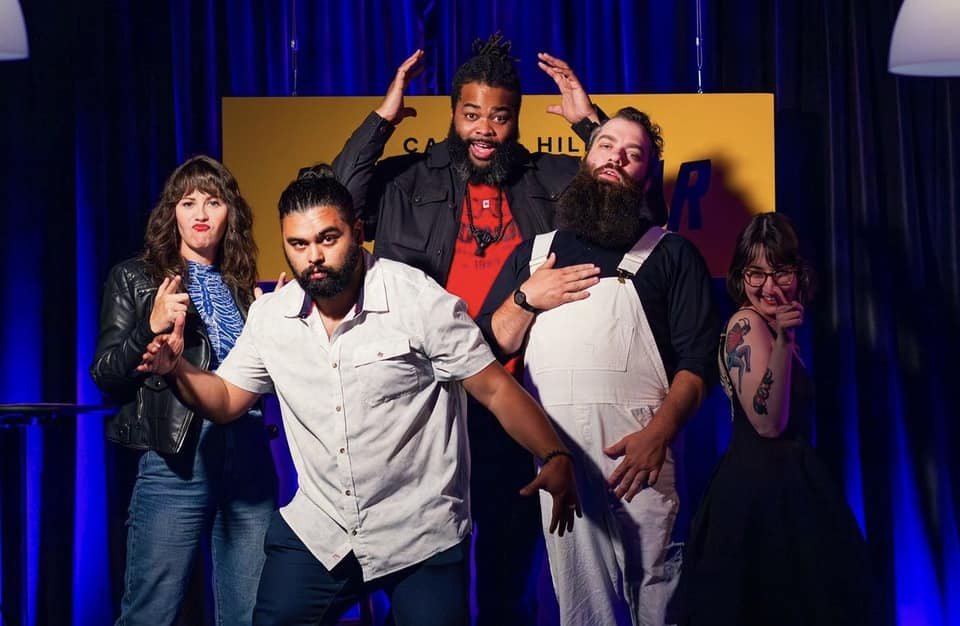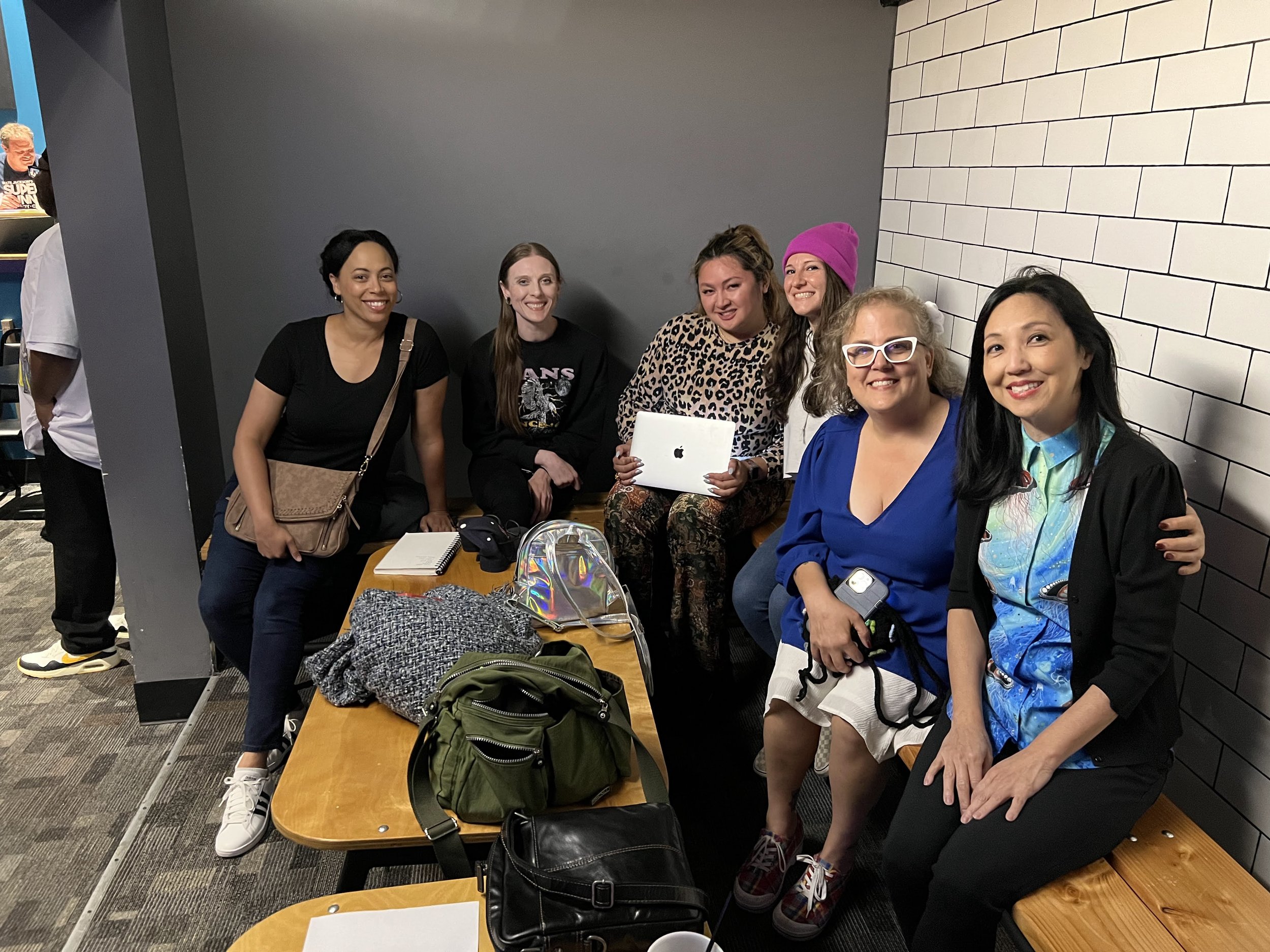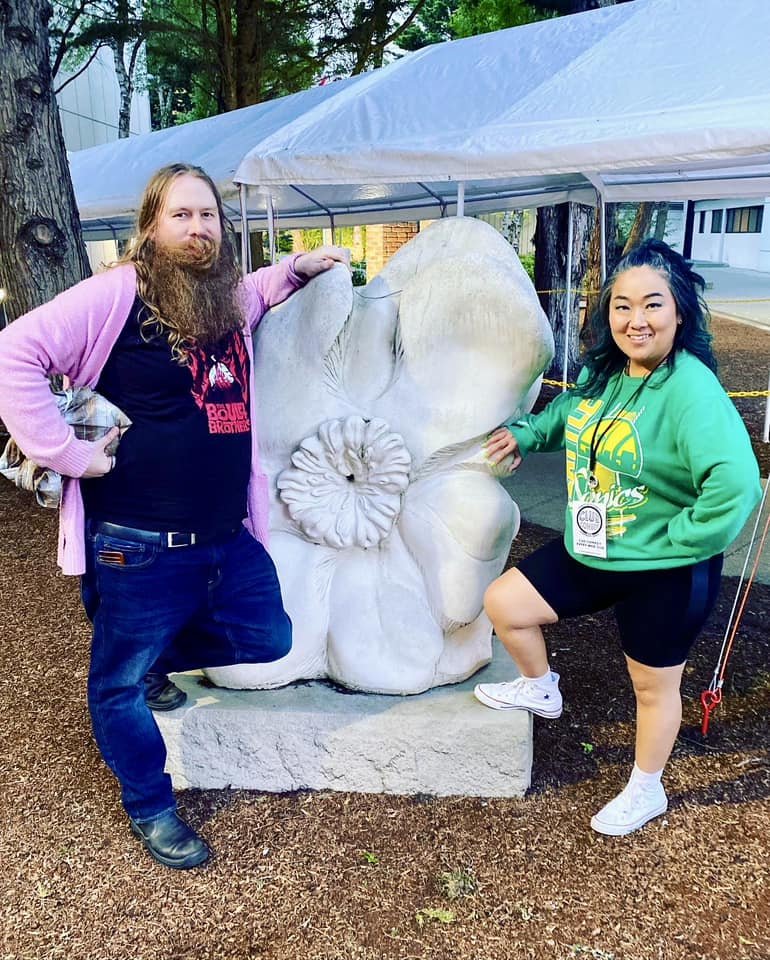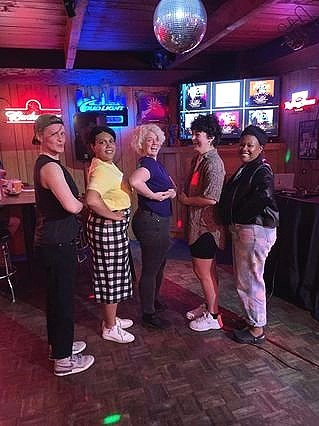Join Northwest Comedians (Booking/Networking)
Join Northwest Comedians (Booking/Networking)
So you think you’re funny huuuuh?? Sign your soul to the cult that is Seattle comedy.
Membership includes wanting to die
Getting humbled
Developing an addiction
Feeling a sense of belonging
Advice for Beginners
I. Writing a Joke
Try writing a joke, it could be something you thought was funny or a story from personal experience
Don’t worry too much about it being funny to other people. For now, focus on what you find funny.
Try to include vivid imagery without being wordy. Clear and concise language will allow the audience to follow the structure of your joke.
A basic joke structure works like this: setup -> punchline -> tag
The setup functions as the introduction to a situation or characters, ect.
The punchline is where a contrast is made to the setup, or a different idea is presented relating to the setup.
The tag, (which is not always necessary) can add a “polished” feel to jokes, serves to comment on the joke.
Let’s see this broken down: “It is amazing what people believe. I watch these infomercials late at night, if it gets late enough, the products start to look good to me. I have actually found myself sitting there thinking, ‘ya know I don’t have a knife that can cut through a shoe. I don’t think any of my knives are good enough to cut through shoes. I’m gonna get this knife and cut my shoes up.’” - Jerry Seinfeld
II. Find an Open Mic
You’ve come to the right place for this one, check out our list under “Open Mics” for Seattle-Tacoma-Everett mics!
Great, I’ve found one, now what?
Show up before the sign up time, seriously, it helps to get the spot you want on the show.
Find the producer (they usually sit at a table with a clipboard near the stage) and ask them 3 important questions:
How long are the sets?
When do I get the light?
Where will I get the light?
KEEP COMING BACK! “There is no substitute for stage time” - Greg Dean. Stage time is paramount for developing your act, even if you’re doing this casually. So get back on stage and do it again!
III. Stage Etiquette
Put the mic stand behind you when you get up there. This does not apply to those who want to keep the microphone in the stand.
Anything in front of you can become a barrier between you and the audience and will mess with their psyches.
I mean go ahead and do that, if that’s your thing.
It feels like I’ve been up here for too long!
You may have, but that’s a mistake you can avoid if you know where the light is located.
What is this light ya keep yapping about?
The light is usually a phone flashlight that a producer shines towards you when you have 1 minute left. If you see it, wrap up. At clubs, the light us usually located above the crowd and is a dim red bulb, though some clubs have a digital timer facing you.
IV. Stage Presence
Stage presence is something you will develop over time.
What even is it?
It varies from comedian to comedian. “Stage presence” may be the way you’re holding the microphone, your posture, the movements you make and whether you have act outs for your jokes.
Most people will be stiff initially; your movements will loosen up over time.
V. Reviewing Material
Reviewing and revising material is essential to bettering your craft. Set your phone up to record yourself and listen to it the next day.
Yikes, I gotta listen to myself?
We have to hear you too, how do you think we feel?
It’s super cringy to hear yourself but it will 100% give you feedback on things like shortening your set up and fixing the timing.
VI. Collaborate
Collaborating can be a huge benefit to your writing.
Ask around about writing groups and writing workshops, they exist in the dozens!
Don’t be (too) shy, I know this is Seattle and we’d rather die than talk to our neighbor, but sharing your ideas can lead to developed ideas such as skits or short films.
Important Tips
This is a job after all, so as Ralphie May says, “don’t fuck the waitstaff”.
Be a professional, treat your fellow comedians as coworkers. These places may seem more casual than most workplaces but this workplace might just lead you to a career in the industry, so don’t muck it up with petty drama.
Read the audience the best you can, if you think a joke is going to really piss them off, it very well might. It’s your job to use the best judgement.
You are responsible for the relationship you have with the audience. Sure, in the beginning it’s going to be rocky but if you keep going on stage, you’ll develop ways to deal with different audiences and the different relationships you build in those exhilarating few minutes you get with them.
Written by Mitch Schaab
Getting started : Open mics are the gateway drug to standup comedy
Open Mic Etiquette
When you go to an open mic, you will rub shoulders with new and old comedians alike. Experienced comics meet brand new comics all the time and will judge them on their behavior, as well as their material.
Most gigs come through networking, and new comics should be wary of breaking the unwritten rules, otherwise they might have trouble getting gigs later on. It should be obvious why: Working comedians do not want to work with people who make their job harder.
If you go to an open mic to perform, remember your goal: make the show better. You won't always succeed but that is essentially the spirit of all the rules to follow.
1. Don't heckle other comedians
The rudest thing a comedian can do to another comedian is interrupt their set.
2. Move your lively conversation out of the showroom
Everyone hates it when audience members are having a conversation during the show: it's rude to the comedian on stage and it distracts other audience members. Comedians are not exempt from this rule. If you are having a conversation, leave the room.
3. Help fill seats if there isn't much of an audience
If an audience member walks in and sees an empty room and a bunch of open mic comedians waiting to tell jokes, they will leave. Sit in the chairs and watch the show (and maybe even enjoy it!), and you will help encourage audience members to stay and watch.
4. If you see audience members standing, help them find a seat.
Audience members are scared to seat themselves during a show. People lingering in the back of the showroom cannot really enjoy the show and are more likely to leave. Just go up to them and say, "We have a table for you right here!" (be sure to have a table for them right there, too)
5. Likewise, if audience members trickle in, give them your seats
It should be easy to get other comedians to move off of a table during the show if you just explain to them that you want to give the seats to audience members.
6. Order something or just give the server or bartender a little $1-$2 tip for the water
This one is just a good look. You will be supporting the venue and building up the morale of the staff. The most important critic of the show, aside from the venue owner, are the staff. Nothing kills an open mic faster than complaints from the staff.
7. Don't trash talk other comedians from the stage (unless it's funny)
When you have your turn on stage, use it to tell your jokes. Do not use stage time as a soap box to insult or harass other comedians. It’s not funny and it will not only burn bridges but will also upset the audience, who wants to hear jokes, not shit talk.
8. If you notice technical problems, tell the host or producer to make sure they have an opportunity to fix it
If the audio levels are bad, or if the stage lighting is awful, notify the person running the show. If you notice there are not enough tables and chairs for the audience members coming in, see if you can help find some. Do not interrupt the show but do try to be helpful without being disruptive.

Photo By Courtney Brennan

Photo by Stephen Michael James

Photo By Deb Tahara

Photo by Jaci Terjeson

Photo by Stephen Michael James

Photo By Deb Tahara

Photo By Courtney Brennan

Photo By Dewa Dorje

Photo By Keeks

Photo by Megan KD

Photo by Stephen Michael James

Photo by Megan KD

Photo by Rachel Aflleje

Photo by Megan KD

Photo by Mary Hall
Readings and Videos to watch….
Youtube Videos to Watch
Ian Bagg 🔥 How to Do Crowd Work, Mitch Hedberg Stories, Finding Your Voice on Stage + MORE
Ralphie May: Stand-up Master Class (Disclaimer: Contains slurs.)
Mark Normand 🔥 Crazy Stories, Netflix Special Rejection, Comedy Tips
Talking Funny - HBO (Disclaimer: Contains slurs.)
Whitney Cummings Is Fine ...And Other Lies | Rich Roll Podcast
Jerry Seinfeld — A Comedy Legend’s Systems, Routines, and Methods for Success | The Tim Ferriss Show
Writing Challenges
Push yourself outside your comfort zone and explore different comedic styles. These challenges can help you discover new approaches and refine your comedic voice. Have fun with them!
-
Write a joke with a strict word limit (e.g., 20 words). This will force you to be concise and get to the punchline quickly. goes here
-
Combine two unrelated concepts and create a joke around the incongruity. This can lead to unique and unexpected humor.
-
Craft a joke that sets up an expectation and then subverts it with an unexpected twist. Misdirection can be a powerful comedic tool.
-
Write a joke from the perspective of a fictional character or an inanimate object. This challenge can help you develop diverse comedic voices
-
Challenge yourself to come up with a series of puns on a specific topic. Puns are a classic form of wordplay and can be a great addition to your repertoire.
-
Write jokes about current events or trending topics. This will keep your material relevant and show your ability to comment on the world around you.
-
Craft a joke with a double entendre, a phrase that has two meanings. This adds depth to your humor and engages the audience on multiple levels.
-
Exaggerate a situation or characteristic to the extreme. This can lead to absurd and humorous scenarios.
-
Write a joke based on a personal experience. Sharing relatable stories from your own life can create a strong connection with the audience.

